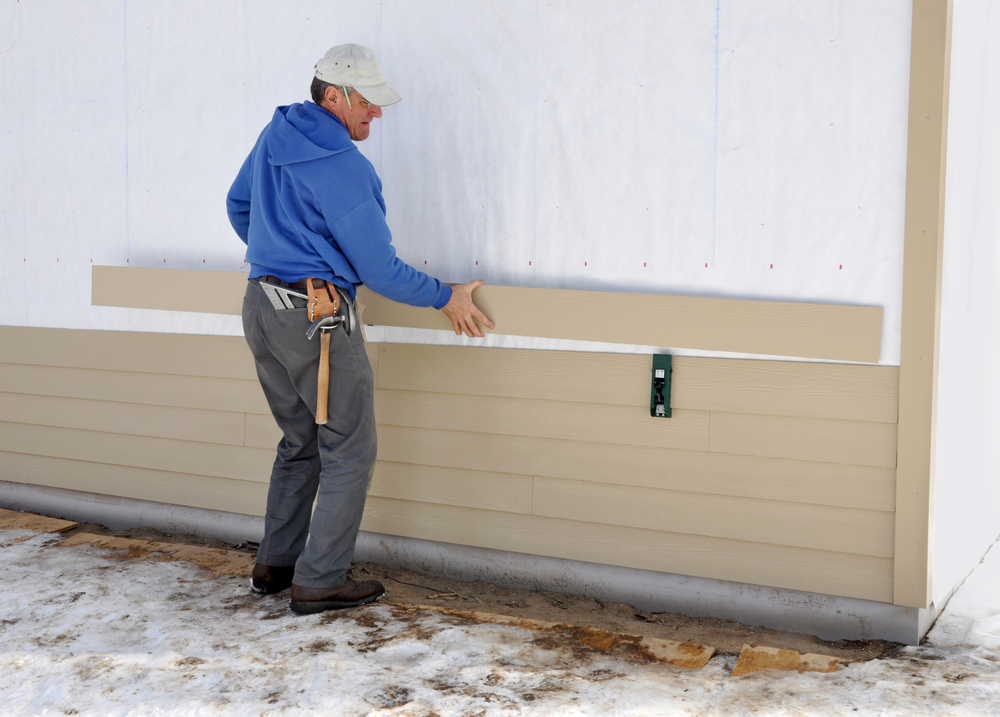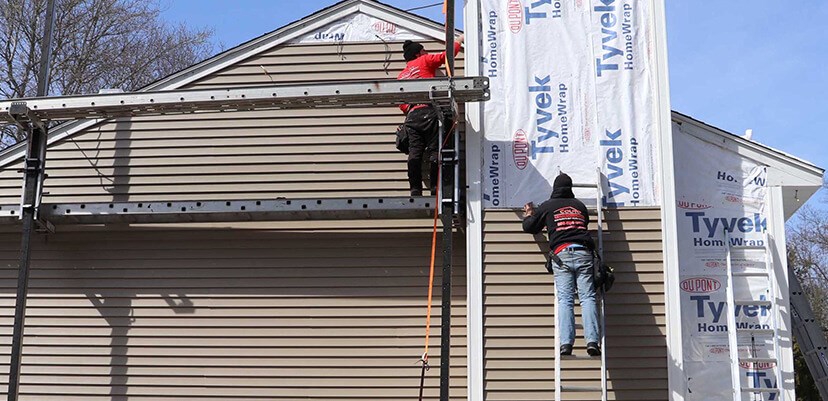Skilled Morris Siding Contractor Providing Customized Exterior Solutions
Skilled Morris Siding Contractor Providing Customized Exterior Solutions
Blog Article
The Vital Overview to the Various Sorts Of Siding and Their One-of-a-kind Advantages
In the realm of home improvement, choosing the ideal home siding is a critical decision that affects both aesthetic appeal and functional efficiency. The variety of materials readily available, such as wood, plastic, fiber metal, cement, and brick, each offer one-of-a-kind advantages that provide to various needs and choices. Recognizing these distinctions can dramatically boost the durability and value of a residential or commercial property - morris siding contractor. With so numerous options to think about, which home siding product genuinely stands out for your specific project? Discovering these options can cause educated choices that line up with both design and usefulness.
Timber Home Siding
Wood home siding, a preferred selection for domestic exteriors, supplies a timeless visual that incorporates all-natural elegance with structural stability. This exterior siding product is offered in numerous styles, consisting of clapboard, tiles, and board-and-batten, allowing home owners to customize their appearance to match their layout choices. Wood exterior siding is commonly crafted from durable varieties such as cedar, redwood, or yearn, which are understood for their durability and capability to endure environmental stress factors.
One of the main benefits of timber exterior siding is its exceptional insulation properties, which can add to energy performance and lower home heating expenses. Additionally, timber siding is naturally degradable, making it an ecologically pleasant choice when sourced sustainably. Normal upkeep, including paint or staining, can extend its life expectancy and enhance its look, enabling property owners to protect the all-natural appeal of the timber.
Nevertheless, prospective drawbacks include susceptibility to pests, rot, and climate damage, requiring ample treatment and upkeep - morris siding contractor. Regardless of these concerns, when effectively taken care of, wood exterior siding can give a sturdy and beautiful remedy that boosts the personality of a home while offering a cozy, inviting atmosphere

Vinyl Exterior Siding
Vinyl siding has actually arised as a leading option for homeowners looking for a low-maintenance exterior choice that integrates resilience and price. This flexible product is crafted from polyvinyl chloride (PVC), making it immune to numerous weather, including dampness and UV rays. Because of this, plastic siding does not warp, rot, or fade, guaranteeing long-lasting visual appeal.
One of the key benefits of vinyl home siding is its comprehensive variety of colors and styles, enabling house owners to achieve the preferred search for their residential or commercial property without the need for constant repainting. Additionally, plastic house siding is simple to install, which can significantly decrease labor prices during construction or restoration tasks.
Plastic home siding additionally adds to energy performance. Numerous alternatives feature insulation backing, which boosts thermal performance, helping to keep comfortable interior temperature levels and possibly decreasing energy expenses. In addition, its smooth surface area helps with simple cleansing, requiring only regular washing with a garden hose to eliminate dust and debris.
Fiber Cement Exterior Siding
Fiber cement exterior siding has actually gained traction among homeowners and home builders alike as a result of its remarkable mix of longevity and aesthetic flexibility. Composed of a mix of cellulose, concrete, and sand fibers, this house siding option is engineered to hold up against extreme climate condition, consisting of high winds, hefty rain, and temperature level fluctuations, making it a long-lasting selection for residential outsides.

One of the key benefits of fiber cement siding is its resistance to bugs, such as termites, and its non-combustible nature, offering enhanced fire safety and security. morris siding contractor. In addition, it is offered in a broad variety of textures, designs, and shades, allowing home owners to achieve their preferred visual without giving up efficiency
An additional benefit is its low maintenance requirements; fiber concrete house siding normally requires paint or staining every 5-10 years, which is less constant than other materials. Its longevity adds to a reduced general cost of possession, as it reduces the requirement for frequent repair work or substitutes.
Eventually, fiber cement home siding stands for an outstanding financial investment for those seeking a durable, appealing, and functional outside alternative, incorporating both kind and feature to improve the home's visual charm.
Metal Home Siding
The allure of navigate here steel home siding depends on its robust longevity and modern aesthetic appeal, making it a popular option for contemporary style. Readily available in products such as light weight aluminum and steel, steel exterior siding uses a series of colors and finishes, allowing property owners to achieve a tailored look that complements their style vision.

Power effectiveness is another substantial advantage, as numerous steel exterior siding items are made with insulation options that assist control interior temperatures. This can cause reduced power expenses in time. Furthermore, steel house siding is frequently recyclable, making it an eco-friendly selection for sustainability-minded property owners.
The installation process for metal exterior siding can be reasonably straightforward, causing a quicker turn-around time for building and construction tasks. In general, metal siding combines functionality and design, making it a useful option for those seeking a enduring and visually enticing outside surface.
Block and Rock Siding
Brick and rock siding stands apart as a classic selection that boosts the aesthetic beauty of any type of home. Recognized for their durability and reduced upkeep, these products offer a remarkable roi while elevating the property's curb charm. Available in numerous shades, textures, and patterns, block and rock can be tailored to fit varied building designs, from typical to modern-day.
One of the primary benefits of brick and stone house siding is their energy performance. Both products possess natural shielding homes that assist control indoor temperatures, potentially minimizing heating & cooling costs. Additionally, they provide exceptional fire resistance compared to various other home siding alternatives, contributing to enhanced safety and security.
An additional benefit is their durability. Brick and rock can last for decades, usually needing minimal maintenance past periodic cleaning. Unlike timber house siding, they are resistant to great site insects and rot, guaranteeing a durable outside that holds up against the aspects.
Final Thought
In recap, the selection of house siding significantly impacts a home's visual appeal, energy effectiveness, and upkeep needs. Each type of siding-- whether timber, vinyl, fiber block, steel, or cement and stone-- offers one-of-a-kind benefits customized to numerous property owner choices and ecological conditions.
One of the key benefits of timber exterior siding is its superb insulation properties, which can contribute to power effectiveness and reduced home heating expenses. In addition, timber house siding is biodegradable, making it an environmentally friendly alternative when sourced sustainably.One of the primary benefits of steel exterior siding is its resistance to various environmental elements.Power efficiency is another substantial advantage, as many metal exterior siding items are developed with insulation choices that help manage indoor temperatures. Each type of house siding-- whether timber, vinyl, fiber steel, cement, or block and stone-- offers distinct benefits tailored to different property owner choices and environmental conditions.
Report this page